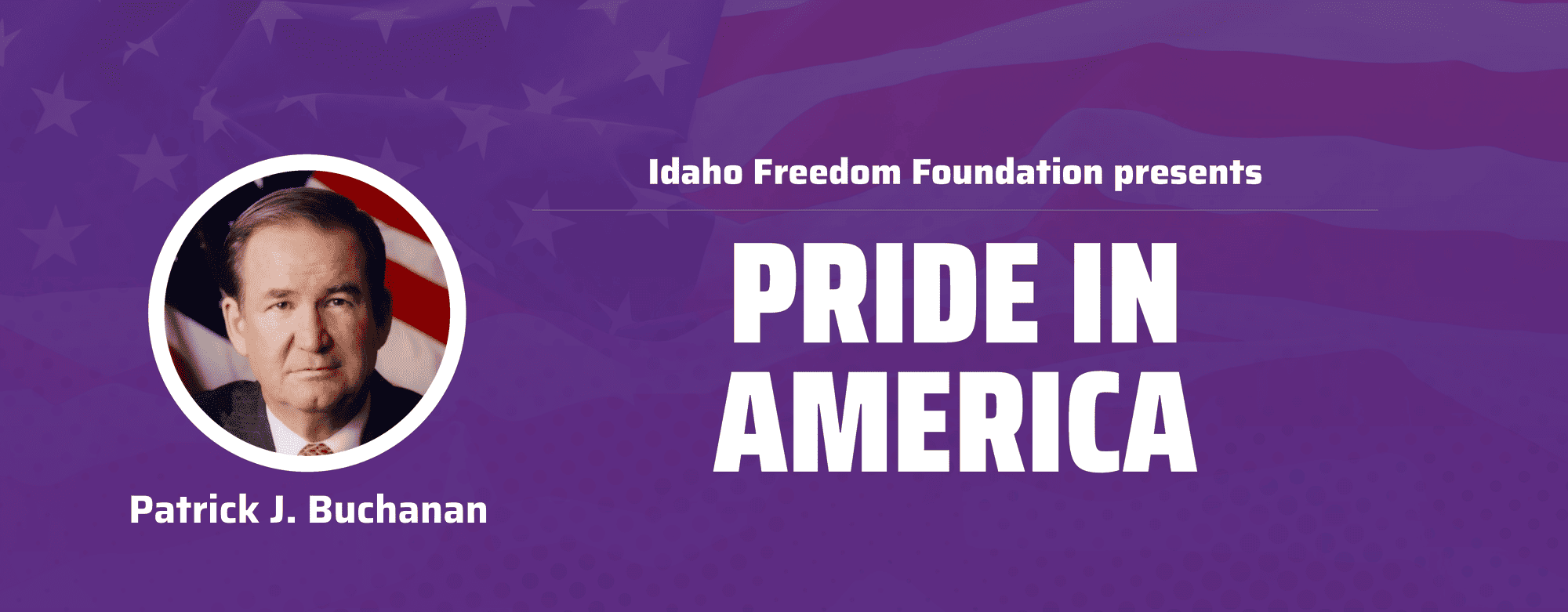


Welcome to Pride in America Month. Every day in the month of June and through Independence Day, we will highlight a figure who has demonstrated and defended American values. Consider it a healthy alternative to the Left's June celebration that has taken over the media and corporate America.
Any professional — whether a politician, a writer, or a plumber — looks up to the men and women who have reached the highest heights in that field. Like children on the playground wanting to be like Michael Jordan, we all look up to those who have set high standards. The man we celebrate today showed what someone in my field, communications, can achieve.
Patrick J. Buchanan was born in Washington, D.C., in the waning years of the Great Depression, before World War II turned it into the headquarters of a mighty military machine. He graduated from Columbia University in 1962 with a journalism degree and went to work for a St. Louis newspaper.
By chance, Buchanan’s thesis paper at Columbia on trade between Canada and Cuba became relevant in early 1961 when such trade tripled, and the newspaper republished it as a special report. Buchanan’s star rose quickly, and he was hired as an executive assistant at former vice president Richard Nixon’s New York law firm.
Nixon brought Buchanan on board for his presidential campaign, and before the age of 30, Buchanan was writing most of Nixon’s speeches. He served in the White House as a speechwriter, policy analyst, and strategist. He stood by Nixon during the worst days of Watergate, telling the Senate committee investigating the scandal that, “The mandate that the American people gave to this president and his administration cannot, and will not, be frustrated or repealed or overthrown.”
Buchanan left the White House and spent many years as a news commentator, serving as the conservative half of both “Crossfire” and “The McLaughlin Group.” In 1985, President Ronald Reagan brought him back to the White House as communications director, and he served two years at that post.
By 1992, Buchanan had grown frustrated with Reagan’s successor, George H.W. Bush. He challenged him in the presidential primary, running on a platform of immigration restriction, social conservatism, and economic protectionism. Despite losing the nomination, Buchanan was invited to speak at the Republican National Convention. His address, remembered today as the “Culture War Speech,” warned of the dangers of a Bill Clinton presidency and urged conservatives not to neglect working-class Americans whose jobs were being outsourced overseas.
Despite left-wing criticism at the time and since, the last thirty years have proven Buchanan particularly prescient. Outsourcing has destroyed the American working class, and now with little hope they turn to drugs and idle pursuits. The degradation of traditional values has harmed the American people, as the left seems to have greased the slippery slope.
Buchanan’s 2011 book “Suicide of a Superpower” was subtitled, “Will America survive to 2025?” That is an open question from our vantage point in 2023. In the years to come, Buchanan’s warnings will go down in history like those of Cassandra before the burning of Troy.
Nevertheless, Pat Buchanan’s life remains a story of American achievement. Using only his brain and his pen, he gained the ear of politicians and presidents and set the standard for conservative ideas for three generations.
Do you have a great American who deserves to be celebrated this month? Let us know!


